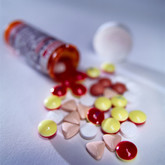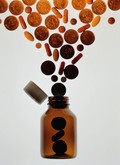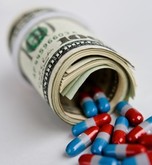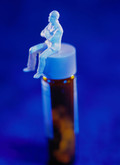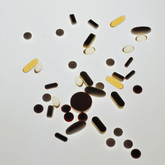Generics
Teva launches generic acamprosate in US
Israeli generics giant Teva Pharmaceutical Industries (Teva) announced on 22 March 2016 that it had launched a generic version of alcohol dependence treatment Campral (acamprosate).
Impact of South Korea’s new drug–pricing policy on market competition
In April 2012, the Korean Government implemented a new policy to try and make its multiple sourced (off-patent) market more competitive. Their objective was to lower the price of generics through increased competition. The government in this way also aimed to reduce the costs for both patients [who have typically a 30% co-payment in ambulatory care (20% in hospitals)] and the National Health Insurance. The core of the policy was to establish the same maximum reimbursement price, i.e. the same ceiling price, for both the originator (brand-name) and the generic drug. This was expected to make the market more competitive, with generics manufacturers competing with each other to gain market share by lowering their prices. However, other professionals argued that this policy would still favour originators, given the general belief that an originator medicine, which is often from an international pharmaceutical company, would be better quality.
Costs and prices of entecavir to treat Hepatitis B
In an analysis of the costs and target prices of Hepatitis B treatment entecavir, author Andrew Hill from Liverpool University, UK and colleagues from Imperial College London, UK and Howard University, Washington DC, USA investigated how use of generics is affecting the cost of Hepatitis B treatment around the world [1].
FDA approves Teva’s Viagra generic
Israeli generics giant Teva Pharmaceuticals (Teva) has received US Food and Drug Administration (FDA) approval for its generic version of Pfizer’s blockbuster erectile dysfunction drug Viagra (sildenafil), which is also called Revatio in the US.
Lupin and Gavis to divest generics to appease US FTC
Lupin Pharmaceuticals (Lupin) and Gavis Pharmaceuticals (Gavis) have reportedly agreed to sell two generics in order to finalize Lupin’s acquisition of Gavis.
Is India ready to use only generics?
This editorial provides a balanced and neutral perspective of the debate regarding use of brand-name versus generic medicines, from an Indian endocrine point of view. It helps stakeholders arrive at appropriate decisions, using a process of informed and shared decision-making [1].
FDA lifts import ban on Chinese API to prevent shortages
The US Food and Drug Administration (FDA) has lifted its ban on one of the active pharmaceutical ingredients (APIs) from China-based Zhejiang Hisun Pharmaceutical (Hisun) due to a ‘critical drug shortage concern’.
Hilary Clinton goes after Valeant for ‘predatory pricing’
Presidential candidate Hilary Clinton has said in a new advertisement that she is ‘going after’ drugmaker Valeant Pharmaceuticals (Valeant) for its ‘predatory pricing’.
Perception and knowledge of generics in Portugal
Patients in Portugal are misinformed about generics, according to researchers from the Bragança Polytechnic Institute [1].
Biocon gets first European generics approval
India-based biologicals specialist Biocon announced on 15 February 2016 that it had received its first European generics approval for a generic version of Astra Zeneca’s blockbuster anti-cholesterol drug Crestor (rosuvastatin).
